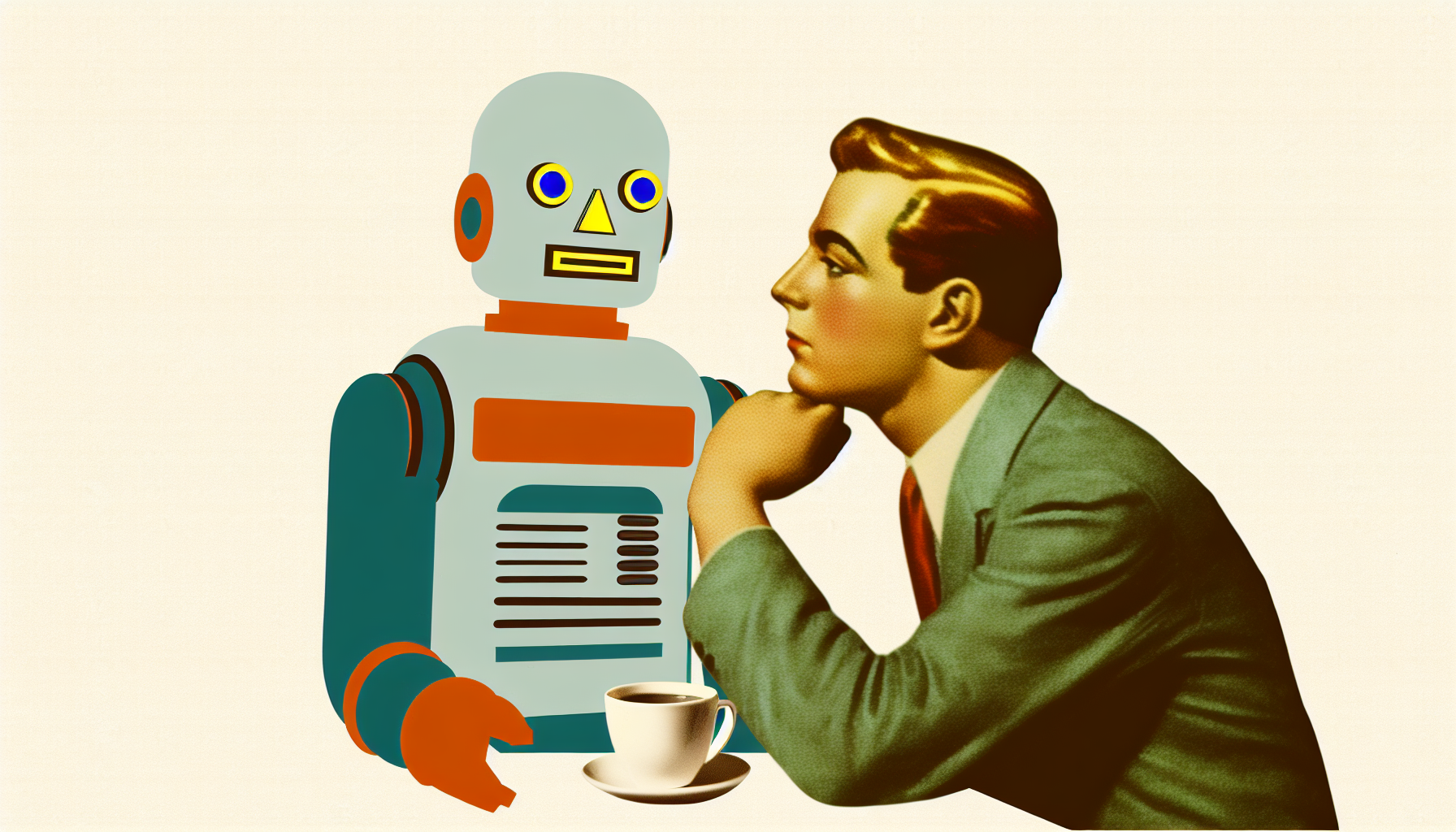In the not-so-distant past, a wise person might have confidently declared that the essence of our humanity lies in our ability to reason, create, and strive with purpose. As we turned the corner of the 21st century, however, artificial intelligence barged into our philosophical kitchen, uninvited yet undeniably fascinating, rummaging through the cabinets of our existence. With AI growing ever more capable of reasoning, creating, and even striving (albeit computationally), we find ourselves pondering its effects on our collective sense of purpose. Perhaps it’s time to share a drink with this digital companion and consider what it means for our human condition.
AI’s influence nudges us into an existential conundrum, partly because of its capacity to automate tasks once deemed innately human. From artwork and poetry to diagnoses and stock market predictions, AI has demonstrated that it can excel at roles traditionally infused with human intention. Yet, does this evolutionary leap leave us with more time to sip lemonade under the shade of the existential tree, or does it erode the very foundation of what gives us a sense of meaning?
Redefining Purpose in the Age of AI
At its core, purpose is a universal human craving. It’s akin to our need for food, shelter, and the occasional existential crisis. We look for purpose in work, relationships, hobbies, and through the impactful paths we choose to tread. AI, however, challenges us to rethink where and how we derive this sense of meaning. When AI takes over tasks that once fueled our self-worth, like diagnosing medical conditions or composing a symphony, it leaves us asking, “What’s left for us?”
This challenge nudges us towards redefining our roles and identities. Rather than relying on activities that machines might execute better, humans might focus on exercises of purpose that are intrinsically nourishing, even if they’re imperfectly done. After all, ruining soufflés and drawing wobbly portraits of cats remain exclusively human privileges.
The Gift of Time and Exploration
A fascinating consequence of AI’s rise is the abundantly available time it potentially gifts us. With machines covering our backs in routine endeavors, we’re encouraged to indulge in exploratory pursuits—the very luxury that historically only monarchs and retirees could afford.
This opens a path to a more leisurely exploration of life, much like a philosophical stroll through an art gallery with no intent of purchase. Time will tell if we squander these valuable minutes binging cat videos or if we choose to dive into introspective projects that deepen our purpose—like that novel you always wanted to write or the perennial quest for the perfect pesto recipe.
AI and Human Connection
Human bonds thrive on empathy, understanding, and shared experiences. While AI can mimic human interaction and replicate certain social cues, it lacks authentic emotional depth—that complex swirl of joy, frustration, and irrational affection that characterizes human relationships. This leaves a rich landscape for purpose deeply rooted in connection with others, a foundation AI cannot erode.
Indeed, AI can ironically enhance human bonding—by facilitating communication, fostering collaborations, and breaking down barriers erected by geography. When a mechanism enables us to focus more on interpersonal experiences, it doesn’t steal our purpose; rather, it enriches it.
Possible Pitfalls and Ethical Considerations
Not all that glitters in AI’s processing units is gold, however. The impact of automation on the job market, for instance, warrants serious reflection. If AI renders entire professions obsolete, societies must navigate the consequent upheaval with care. This shift necessitates reevaluating systems like education to prepare future generations for a world in which many tasks are automated, ensuring that they’re equipped to find purpose in roles humans are uniquely suited for.
On top of this, ethical concerns about AI decision-making invite us to ponder humanity’s guiding principles. As we give machines greater autonomy, understanding their operational transparency becomes vital. We must grapple with questions like “Who owns this AI?” and, more optimistically, “Would this AI help plan my wedding—in a way that’s romantic and not just efficient?”
The Future of Purpose
Ultimately, the extent to which AI influences the human sense of purpose is a narrative we’re writing in real-time. Will AI liberate us to engage more deeply with creative, social, and personal undercurrents of existence, or will it create a restless void in our need for productivity and achievement? Perhaps it’s not a question of either/or, but rather a call to blend new and old paradigms of purpose.
Purpose, like any philosophy, shifts with context—it’s as fluid as a cloud but as crucial as oxygen. As we sit at the crossroad of human evolution, letting AI into our domain might just compel us to ponder who we are, what we do, and why we do it with fresh eyes. And if nothing else, perhaps this exploration may finally prompt us to answer the age-old question: if a tree falls in the forest, and AI analyzes the sound patterns, did it fall with purpose?
For now, enjoy the journey of discovery, fellow humans. Embrace the machines, but never lose sight of the organic resonance of our own voices—for that remains a legacy no algorithm can replicate.

Leave a Reply